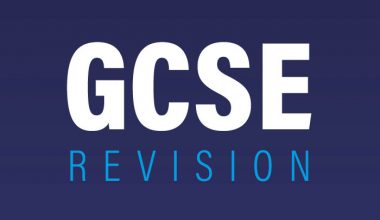As a student, it’s important to understand the duration of study leave that is necessary for optimal academic performance.
Study leave is a period designated for students to focus solely on their academics without any other distractions. The length of study leave can vary depending on the level of education, the complexity of the subject matter, and individual study habits.
It’s important to strike a balance between taking enough time to study effectively and not burning out from excessive studying.
In this article, we will explore the ideal length of study leave for students at different educational levels and provide tips on how to make the most of this valuable time.
Table of contents
- What is study leave?
- When Can I Take Study Leave For GSCE?
- Why is study leave important?
- How much study leave is allocated to Year 13 students?
- Is study leave mandatory?
- When is your study leave for GCSE 2024?
- Who is eligible for study leave?
- How long is the study leave?
- Is study leave mandatory?
- How much study leave are you entitled to?
- Do you receive study leave for professional exams?
- Frequently Asked Questions
- Conclusion
- References
- Recommendation
What is study leave?
Study leave is a designated interval during which your school may grant you time away with the expectation that you’ll focus on self-directed study at home. This typically occurs in preparation for imminent examinations, including GCSEs.
Throughout this study leave period, your presence at school will primarily be required solely to sit exams or if you choose to participate in revision sessions.
It’s worth noting that the duration of study leave varies among educational institutions; some may not provide any time off, while others may allocate a few weeks for this purpose.
When Can I Take Study Leave For GSCE?
You can typically take study leave for your GCSEs during the final few weeks leading up to your exams. Many schools offer study leave for students to focus on their revision and preparation for their exams without the distraction of regular classes.
It’s important to check your school’s policy on study leave and any specific guidelines they may have in place.
Make sure to communicate with your teachers and school administration about your plans to take study leave so they can provide you with any necessary resources or support during this time.
Remember, effective time management and a structured study schedule are key to making the most out of your study leave period.
Read: When Should You Start Revising for GCSEs?
Why is study leave important?
As the exam season approaches, it becomes essential to allocate your time wisely for revision. Once you’ve covered the entire exam syllabus, being in a classroom offers limited benefits, and your focus should shift to studying in a distraction-free environment.
If you’re feeling overwhelmed or encountering difficulties with specific topics, taking a moment to step back and acknowledge your progress can be quite beneficial.
Study leave serves as a valuable opportunity to alleviate stress and anxiety associated with upcoming exams. The knowledge that your days are dedicated to focused revision rather than socializing can provide a sense of reassurance that your time is being used productively.
Additionally, study leave allows for more flexibility and relaxation, a crucial aspect of self-care during the high-pressure exam period. When you’re at home, you can take breaks at your convenience, ensuring you maintain a healthy balance.
How much study leave is allocated to Year 13 students?
In most schools, Year 13 students are typically allocated study leave for their final exams. The amount of study leave can vary depending on the school and the exam schedule.
Generally, students are given a few weeks to focus solely on preparing for their exams without having to attend regular classes.
During this study leave period, Year 13 students need to create a study schedule, stay organized, and make the most of their time by revising thoroughly and seeking help from teachers if needed.
It’s also a good idea to take breaks, eat well, and get enough rest to ensure optimal performance during the exams.
Is study leave mandatory?
Just as schools are not obligated to offer study leave, students are not obliged to take it. Since every student has unique learning preferences, schools often provide options for those who prefer to continue attending classes for revision purposes.
Nonetheless, many schools view study leave as a valuable opportunity for students to cultivate independent academic skills in preparation for further education.
What is study leave at work?
Workplace study leave refers to dedicated time away from work that allows you to focus on your educational pursuits. The duration of this leave can vary significantly, spanning from a few days to several weeks or even months.
Typically, it is a benefit extended to employees engaged in apprenticeships, university students juggling work alongside their studies, or mature individuals striving to obtain qualifications while employed.
However, there are certain inquiries you should address with your employer. You’ll want to ascertain whether the leave is compensated or unpaid, understand the associated tax implications in either scenario, and determine what documentation or evidence of attendance you must furnish upon your return to the workplace.
Read: The Night Before a GCSE Exam: A Survival Guide in 2024
How Does Study Leave Work For GCSEs?
During your study leave period, the standard expectation is that you won’t need to attend regular school lessons. Instead, you’re encouraged to study independently from the comfort of your home in preparation for your upcoming exams.
This arrangement is permissible because, typically, you will have covered the necessary curriculum by around January or February.
However, it’s crucial to note that you will still be required to be physically present at school for your exams. When doing so, adhering to the school’s uniform policy and punctuality rules is expected.
Additionally, the option to attend revision sessions remains available to you. It’s important to recognize that study leave does not affect your attendance record, and it’s not an automatic entitlement but rather a school policy.
Moreover, many schools offer the choice for students to remain on school premises even during study leave. This accommodation is made in consideration of various circumstances that may prevent you from going home.
Rest assured, you won’t be compelled to leave. For further information, you can refer to this resource on University Compare, which discusses the concept of study leave in more detail.
When is your study leave for GCSE 2024?
Study leave for GCSE 2024 will vary depending on your school’s specific policies and schedule. Generally, study leave is granted to students in the weeks leading up to their exams to allow them dedicated time for revision and preparation.
It’s important to check with your school or teachers for the exact dates of study leave for the GCSE exams in 2024. GCSE 2024 is starting on May 16th and your study leave may begin a month before the exam.
During study leave, make sure to create a study schedule that works best for you, stay organized, and prioritize your revision based on your strengths and weaknesses. Utilize resources such as past papers, revision guides, and online tools to help you prepare effectively.
Who is eligible for study leave?
Study leave eligibility can vary depending on the organization you work for and its policies. Typically, study leave is granted to employees who wish to pursue further education or training related to their current role or future career aspirations. It is often seen as a way for employers to support the professional development of their staff.
In general, employees may be eligible for study leave if they have been with the company for a certain amount of time, have shown dedication and commitment to their work, and can demonstrate how the additional education or training will benefit both themselves and the organization.
It’s always a good idea to check with your HR department or refer to your company’s employee handbook for specific guidelines on study leave eligibility. Remember, open communication with your employer about your goals and intentions can also help make a strong case for being granted study leave.
Read: How to Find Your GCSE Results Online?
How long is the study leave?
The duration of study leave is determined by the policies of the school or college you are attending. Study leave can range from as short as a week to potentially as long as three weeks. In most cases, study leave does not exceed 30 days.
The length of study leave may vary if you are concurrently employed, but this will ultimately depend on the policies set by your employer.
Is study leave mandatory?
No, study leave is not mandatory! It’s not universally provided by schools or employers, and students have the option to attend school or workplace for clarification on any uncertainties or for general purposes.
Additionally, the Department of Education has indicated that study leave ‘may not be applicable’ and encourages schools to ‘maximize opportunities that meet the progression needs of their students during this period.’
The DfE has emphasized prioritizing student mental health, either at home or within the school environment. You can find more details about this in the article on schoolsweek.co.uk regarding the DfE.
How much study leave are you entitled to?
In certain circumstances, students are not technically entitled to study leave, such as Year 11, 12, and 13 pupils. Instead, schools that do offer study leave typically permit a 2-4 week absence.
Legally, the Employment Act of 1996 stipulates the right to time off for various reasons. As a general guideline, employers typically grant around 30 days of study leave if specific conditions (previously mentioned) are met.
Regardless of entitlement to study leave, it remains imperative to ensure that you dedicate ample hours to revision. You can refer to this Think Student article for an estimate of the recommended revision time.
Do you receive study leave for professional exams?
The allocation of study leave for professional exams is at the discretion of the employer. For instance, many trainee employees in fields like accounting often need to balance work and exam preparation in the days leading up to the exam.
Once again, although it is within an employee’s right to request time off for any reason, the decision to grant it depends on the company’s policies and is typically contingent on specific conditions being met (such as a minimum of 26 weeks of employment with the company).
Related: Top 15 Websites for GCSE Revision in 2024 with Answers
Frequently Asked Questions
Study leave before GCSEs and A-Levels is typically around fourteen days (as a rough metric). However, school policies will be different, and can range from two weeks to four.
It is important to therefore check with your school, as students will be better prepared for study leave if they know how long study leave will last.
For working students, roughly 30 days can be granted as a maximum. Once again, it is still imperative that students check with their employers to make sure that they understand their workplace’s policy.
Study leave is not compulsory! Study leave is not always granted by the school/employer, and for students, there is still the option to come into school and ask about something they’re confused about or just come in general.
Also, the Department of Education has stated that study leave ‘may not be applicable’, stating that they encourage schools to ‘maximize opportunities that meet the progression needs of their students during this time period’.
The payment status of study leave depends on your organization’s policies. It can be either paid or unpaid.
Conclusion
The duration of GCSE leave of study can vary widely depending on individual circumstances, educational goals, and employer policies.
Whether it’s a short break to refresh your knowledge or an extended sabbatical to pursue advanced degrees, study leave offers a valuable opportunity for personal and professional growth.
It’s essential to carefully consider your objectives, plan, and communicate effectively with your employer or educational institution to make the most of this time.
Regardless of the duration, study leave is a valuable investment in your future, providing you with the knowledge and skills you need to excel in your chosen field and achieve your educational aspirations.





